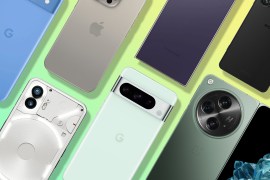Google Daydream View vs Samsung Gear VR: the weigh-in
Google is thinking bigger with mobile VR, but is Samsung's new controller-equipped solution better?
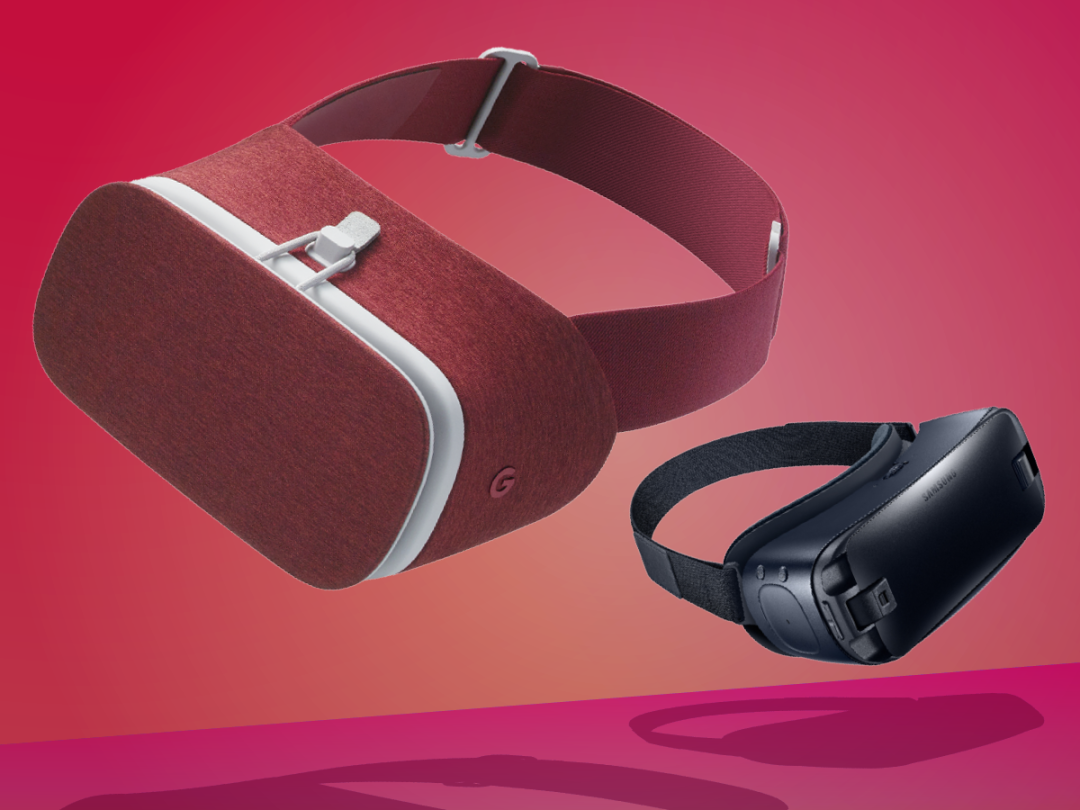
Google’s Cardboard platform remains the cheapest and easiest way to get a taste of mobile virtual reality, but if you want phone-based VR that’s actually good, you get Samsung’s Gear VR. Simple.
Well, it was simple. But then Google wanted to kick Samsung off its perch and take over the high end of mobile VR with the launch of its Daydream platform. Powered by Android Nougat, Daydream brought VR to even more people by making it available on loads more phones (once they’ve got Nougat) and providing apps through Google Play.
Samsung didn’t take that lying down, though: now it’s back with an updated Gear VR, which bundles a controller powered with tech from Rift-creators Oculus. The two headsets have never been more closely matched.
We’ve tried the Google Pixel-powered Daydream View headset, and fondled Samsung’s 2017 Gear VR (controller and all) to see how they shape up against each other.
Design and build: Mmm, face sweater
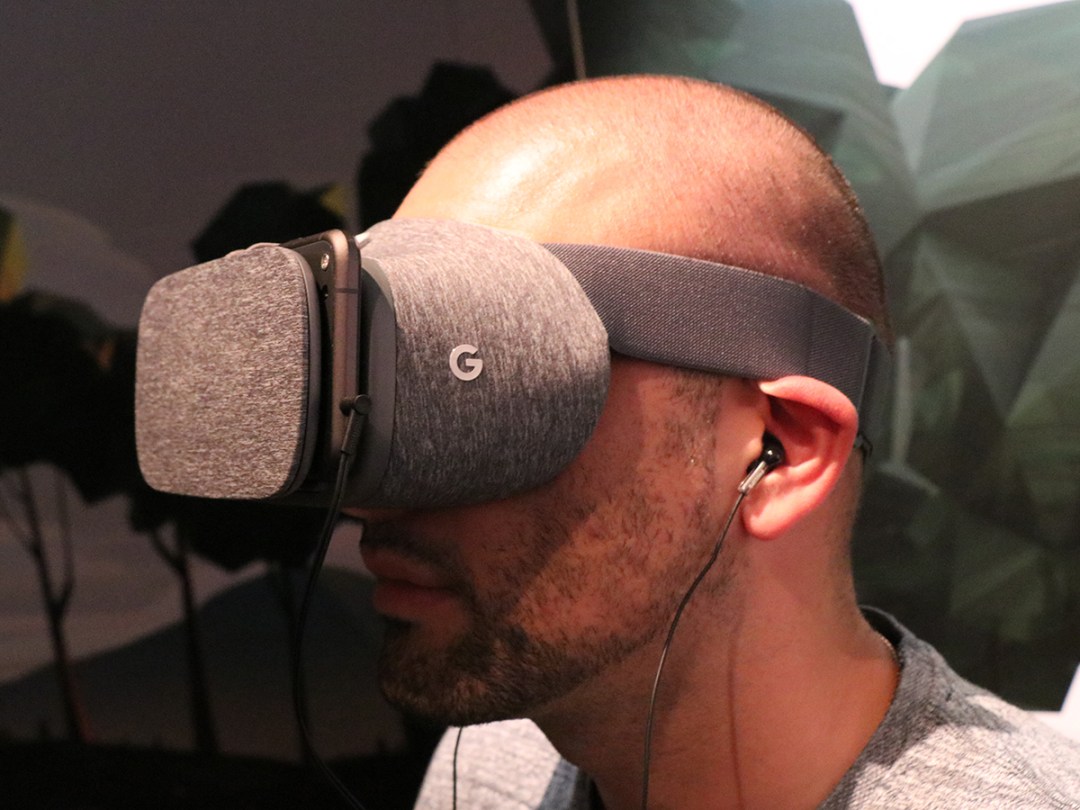

The last few versions of the Gear VR were all pretty similar, aside from a few improvements and tweaks: they’re heavy on plastic, all nestling your Samsung phone of choice within and using it for the brains and screen alike.
We reviewed last year’s consumer model for the Galaxy S6, S6 Edge, S6 Edge+, and Note 5, and found that it was comfortable and sturdy, and the straps work well. It also has a small touchpad and buttons on the side of the headset, which isn’t a great solution, but it’s fine for some games.
You used to have to buy a separate gamepad for more advanced games, but as not many people did, app developers didn’t go out of their way to make games for it. That should change in 2017, as the latest Gear VR comes bundled with a dedicated wireless remote controller. We haven’t given it a proper try yet, but the built-in touchpad, trigger and volume/home buttons should open up a world of different games and app experiences.
The fabric covering of Google’s Daydream View immediately sets it apart. We had a go with the headset at Google’s event and likened it to “having your face hugged.” It was also the most comfortable VR headset our writer had ever tried, and he’s worn ’em all. Considering the price, that’s hugely impressive indeed.
The Daydream View also comes with a small touchpad remote for games and apps. It’s not as capable as a full Rift or Vive controller, but it beat the tar out of fumbling for controls by your face on the Gear VR. Any future Daydream headsets from other makers will also have the remote, as it’s a required part of the ecosystem. This really set it apart from the previous generation Gear VR, but now Samsung has added a controller of its own, the gap is much closer.
Winner: Google Daydream View – but only just
Screen: Never settle
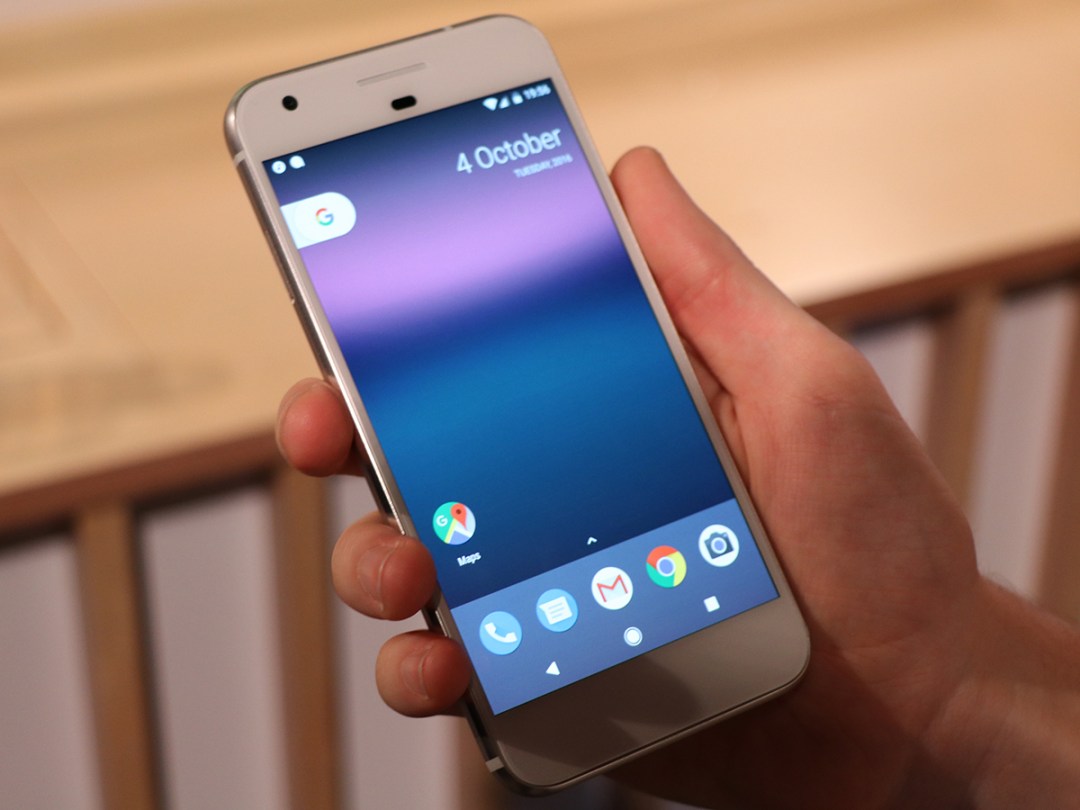
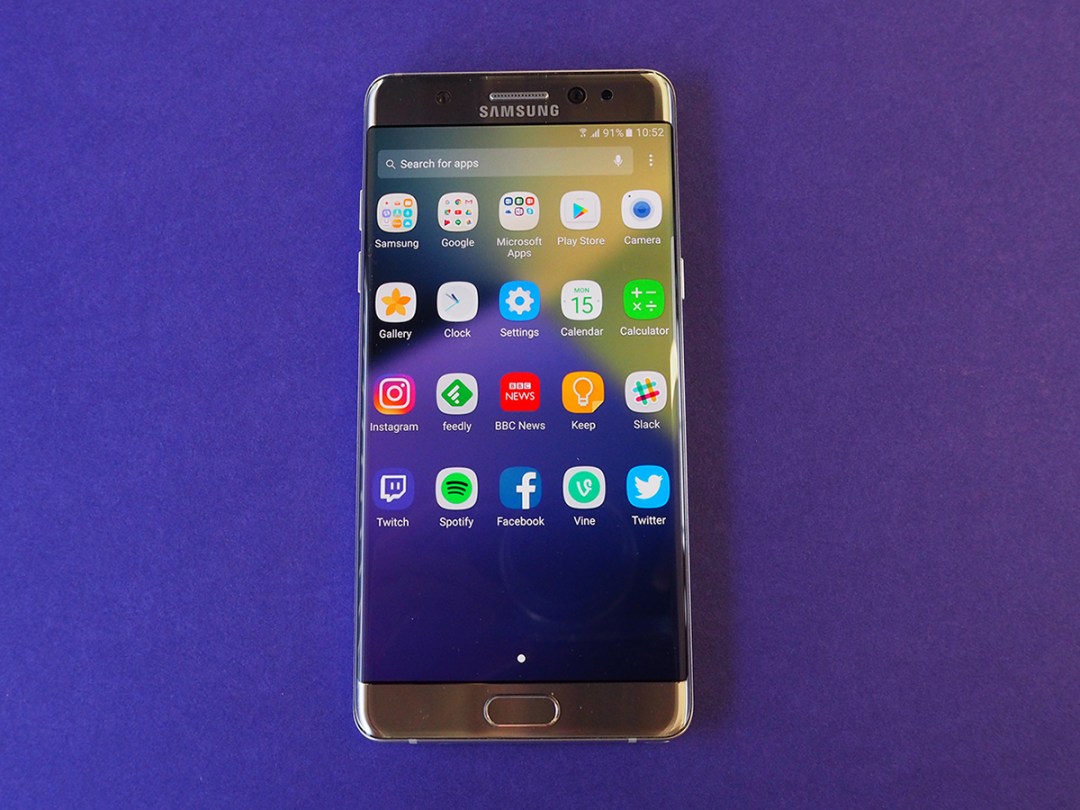
Daydream’s planned wider hardware ecosystem brings benefits to the platform, but it also brings inconsistencies – something we already see with the Google Pixel.
The standard 5in Pixel only has a 1080p display, which is totally good for VR but certainly not the best. Bump up to the 5.5in Pixel XL and you’ll get a Quad HD screen, however, which boosts the resolution significantly and can make a big difference once it’s against your eyeballs.
Meanwhile, Samsung’s Gear VR-compatible phones never waver from the Quad HD standard: every single one of them, from the Galaxy Note 4 with the original Innovator Edition headset to the Note 7 with the latest revision, has a 2560 x 1440 display to ensure that you’re getting the best possible mobile VR viewing experience. And it doesn’t hurt that Samsung’s AMOLED screens have been the smartphone industry’s best during that span, with deeper blacks and richer contrast that will only add to your sense of immersion.
Winner: Samsung Gear VR
Power: It’s all good
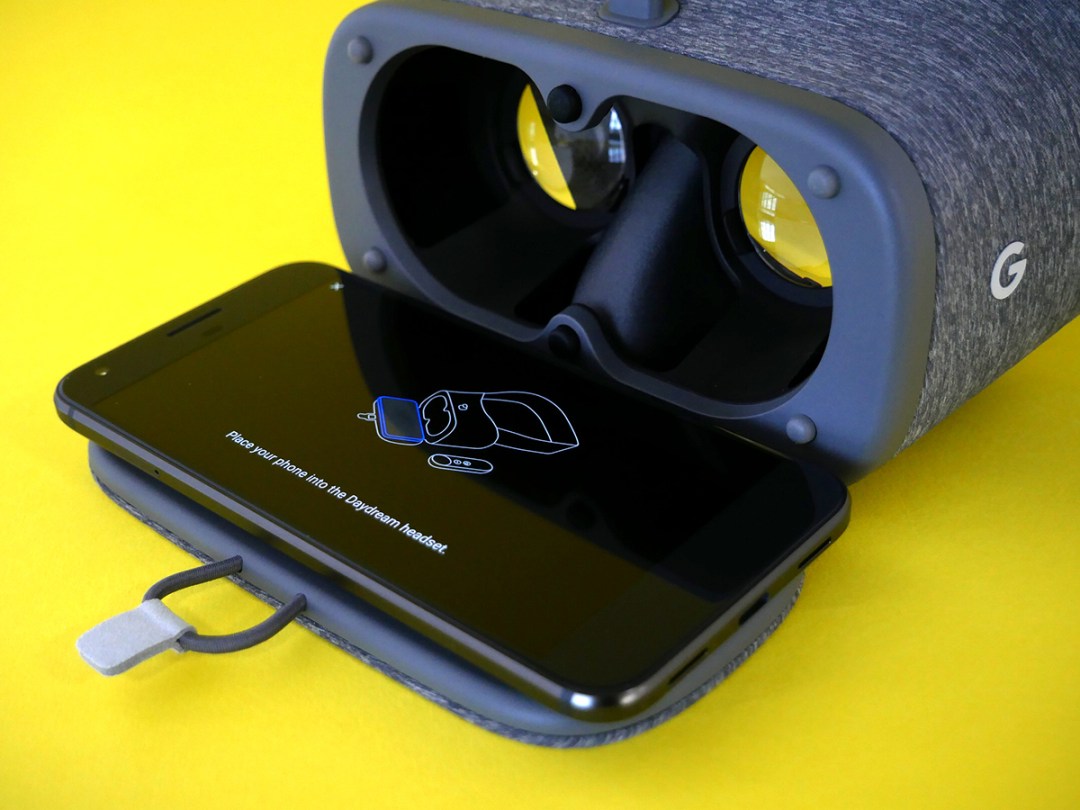
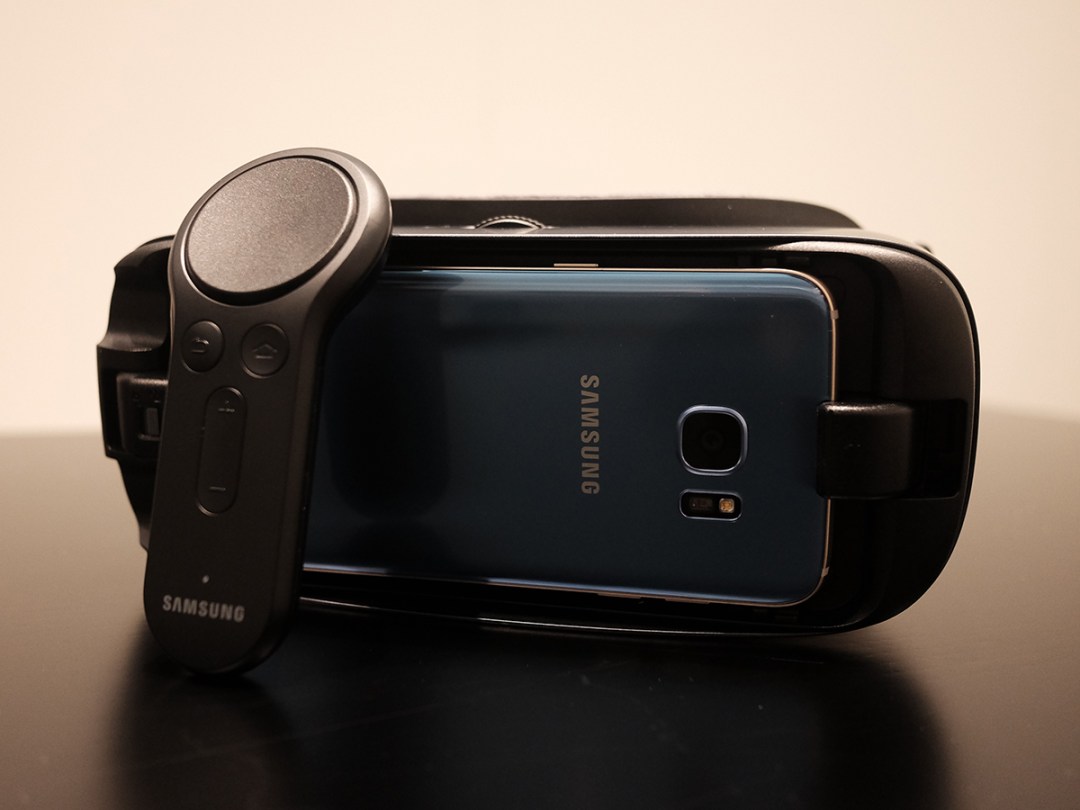
With the Exynos chips of Samsung’s last few phones, the Gear VR is able to pump out solidly impressive game graphics. Again, it’s not nearly on the level of the Vive or PS4-powered PlayStation VR, but they’re still worlds you’ll want to pop your face into and be immersed by.
The Snapdragon 821 in the Pixel and Pixel XL shouldn’t be far off in processing power from Samsung’s latest in-house chips, and in fact, the Snapdragon 820 powers Samsung’s phones in certain territories. So we expect that graphics quality will be pretty close between the two platforms, especially since it will probably continue to be flagship phones housed within.
Winner: Draw
Software: More in store
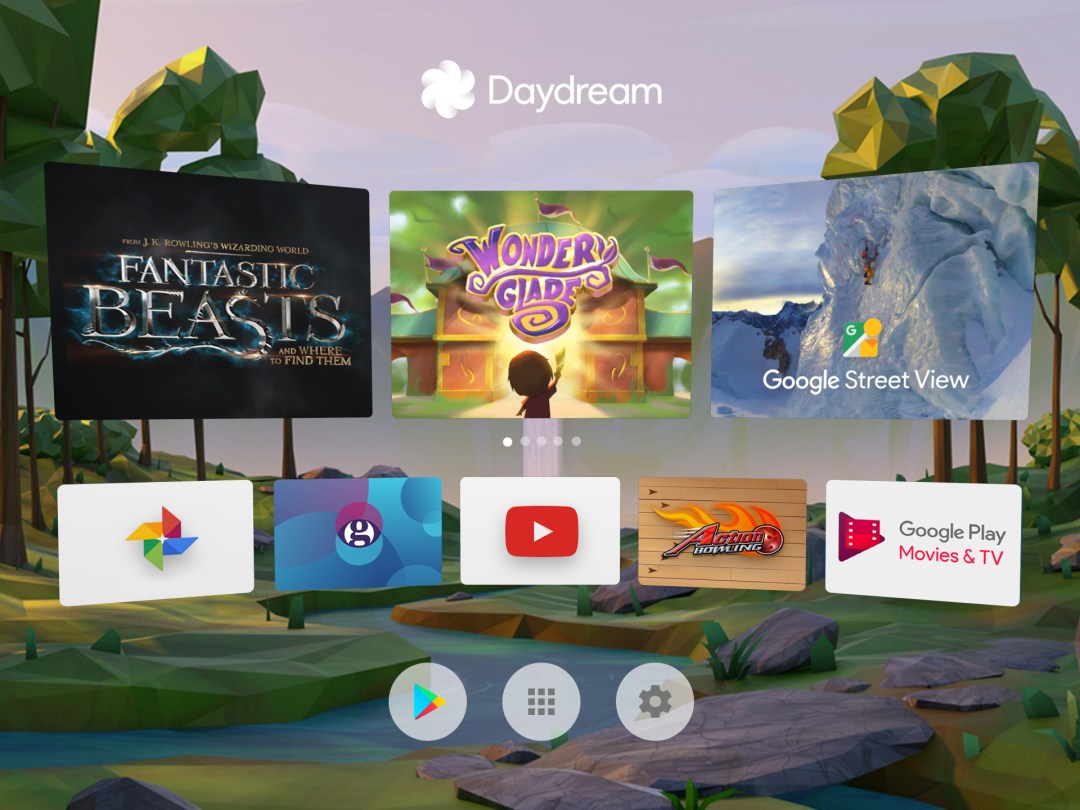
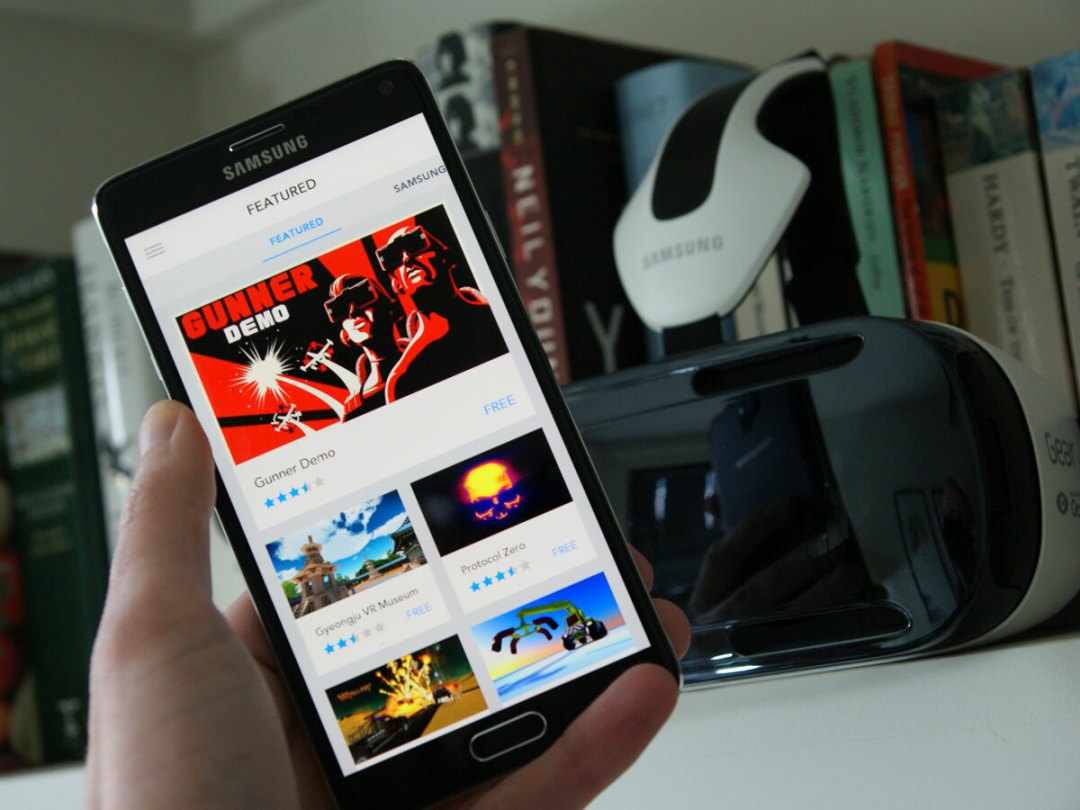
If we’re talking about what will be available on day one for Daydream compared to Gear VR, then we can’t imagine that Samsung has much to worry about when it comes to games and apps. The Gear VR is powered by the Oculus Store, which has many very good picks that have accumulated over the last two years. You’ll find Land’s End, Minecraft, Smash Hit, Hitman Go, and many other worthy downloads within.
Over the long haul, Daydream might offer the wider selection. We’re intrigued to see the Fantastic Beasts and Where to Find Them game, EVE Gunjack 2 (the original is on Gear VR), Need for Speed: No Limits, and EarthShape (from the maker of Thomas Was Alone) in the early days, and using Android Nougat and the Play Store will probably expand the compatibility field.
However, Samsung already has such a stockpile that it will likely take Daydream months to catch up in terms of quantity, if not also quality. We’ll see, though. Ultimately, we wouldn’t be surprised if these libraries end up looking very similar over the long haul.
Winner: Samsung Gear VR
Compatibility: Gimme more
The Gear VR is great, but there’s one really notable frustration: you have to own a Samsung phone, and it has to be one of Samsung’s best phones. Mid-range phones won’t work, and devices from other Android makers won’t fit either. It’s a very limited ecosystem. On the other hand, Cardboard supports loads of phones and we know what that gets you (very little).
Still, if Google’s Daydream approach pans out as planned, it should ultimately prove to be the better option of the two in terms of flexibility. You’ll still need a Daydream-certified phone that hits all of the benchmarks required by Google, but multiple makers will release Daydream devices and they’ll make varying headset shells too, giving you more and more choice.
It still won’t be cheap in any scenario, we imagine, but at least Daydream wants to give you options. Even Samsung plans to make Daydream hardware, which will certainly throw a wrench into this whole debate!
Winner: Google Daydream View
Initial verdict: Daydream believers?
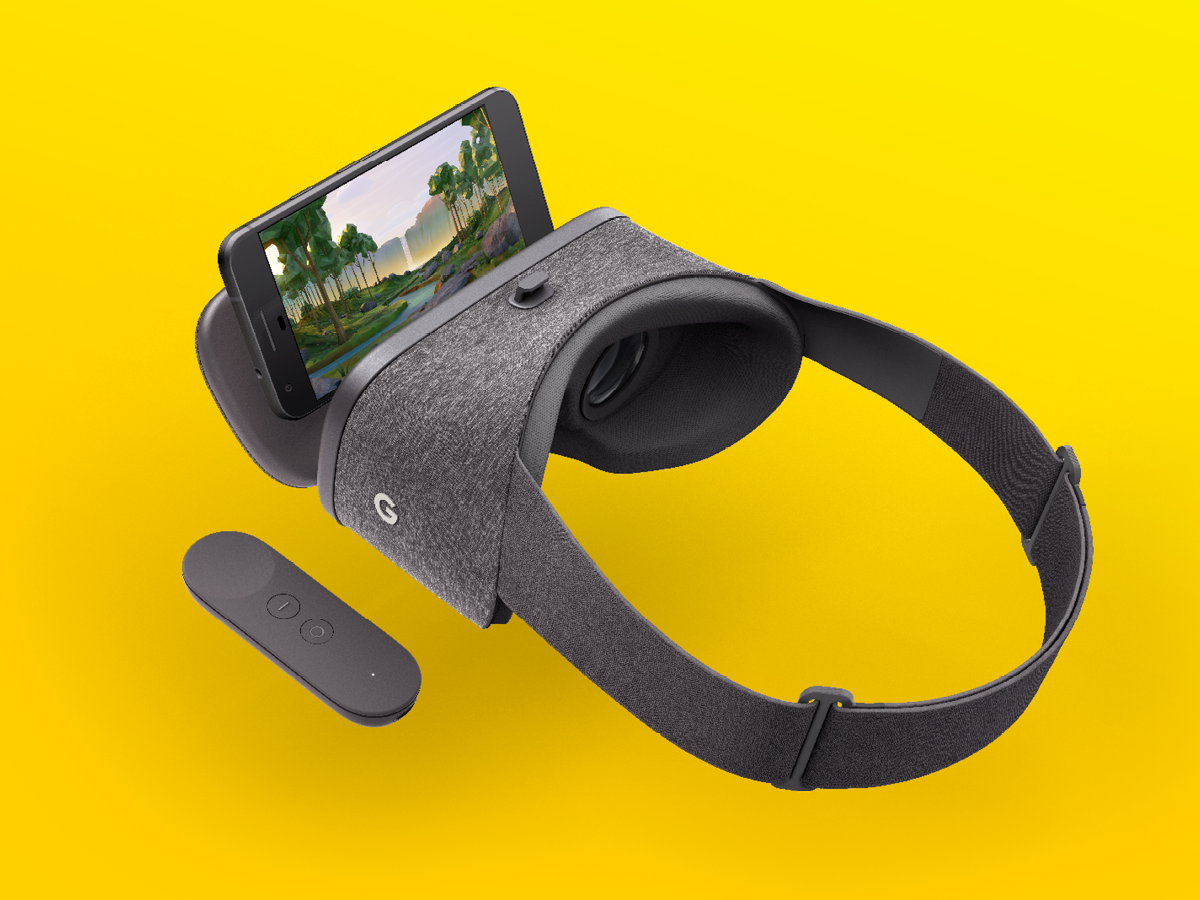
We know that the Gear VR is very good, and we think that Daydream could be even better – but seeing will be believing on this front. Google definitely has the right idea so far, bundling in a touch remote, offering more choice in phones and viewers, and tapping the familiar Play Store for the storefront.
Otherwise, both the Gear VR and Daydream VR look to occupy a very similar space in the market: mid-range, untethered, go-anywhere virtual reality. The experiences seem like they’ll be largely similar, and aside from possible exclusives, even the key software could be pretty much the same across devices.
We’ll reserve a final verdict until we’ve had ample time with the new controller-equipped Gear VR, but Google has definitely come out swinging with Daydream View. Soon we’ll see if it’s enough to keep Samsung on its current mobile VR throne, or if Google will be the new king.



